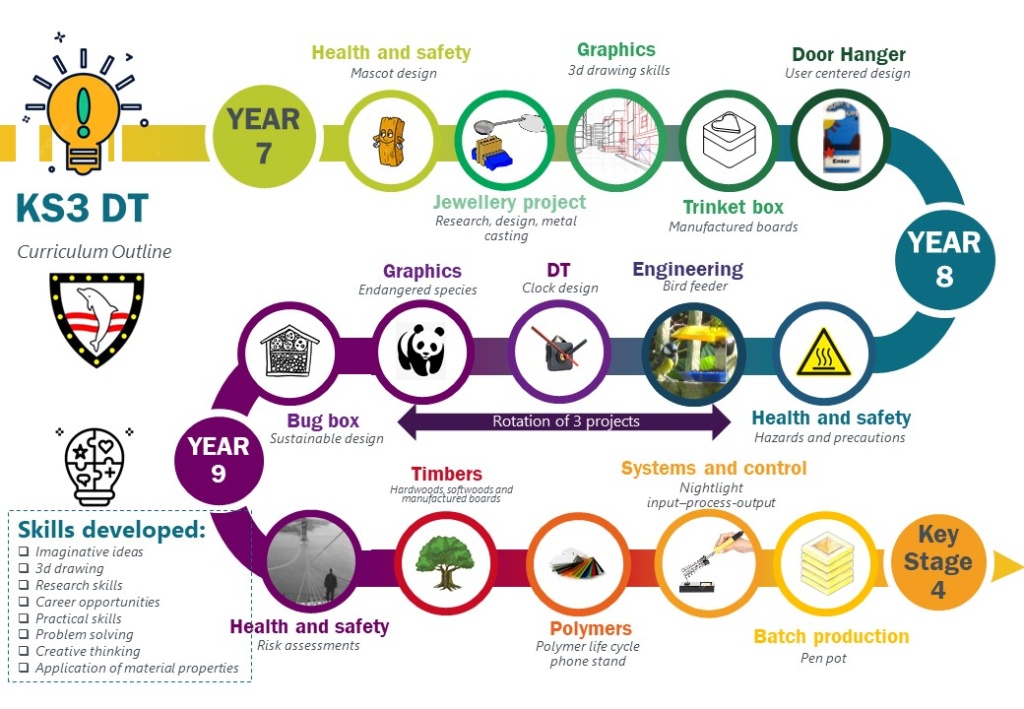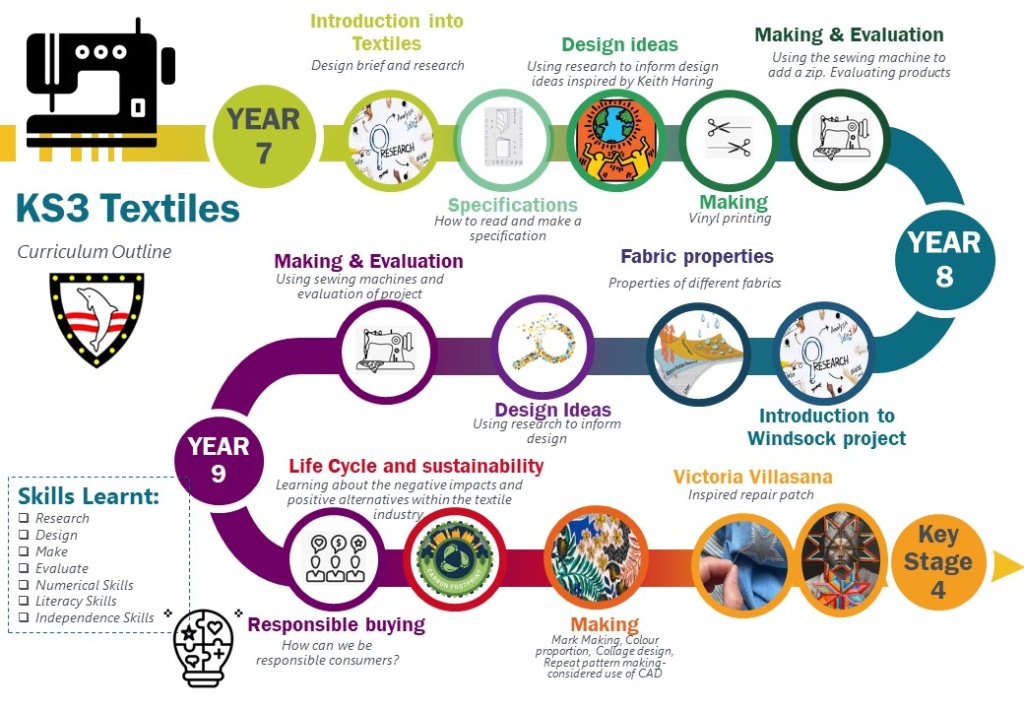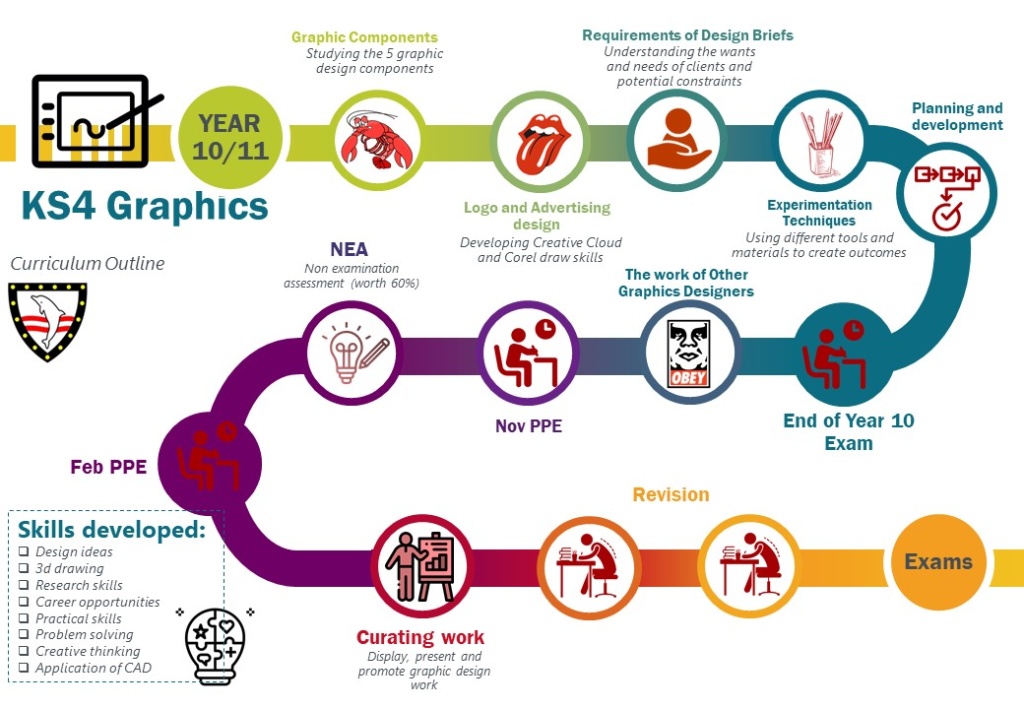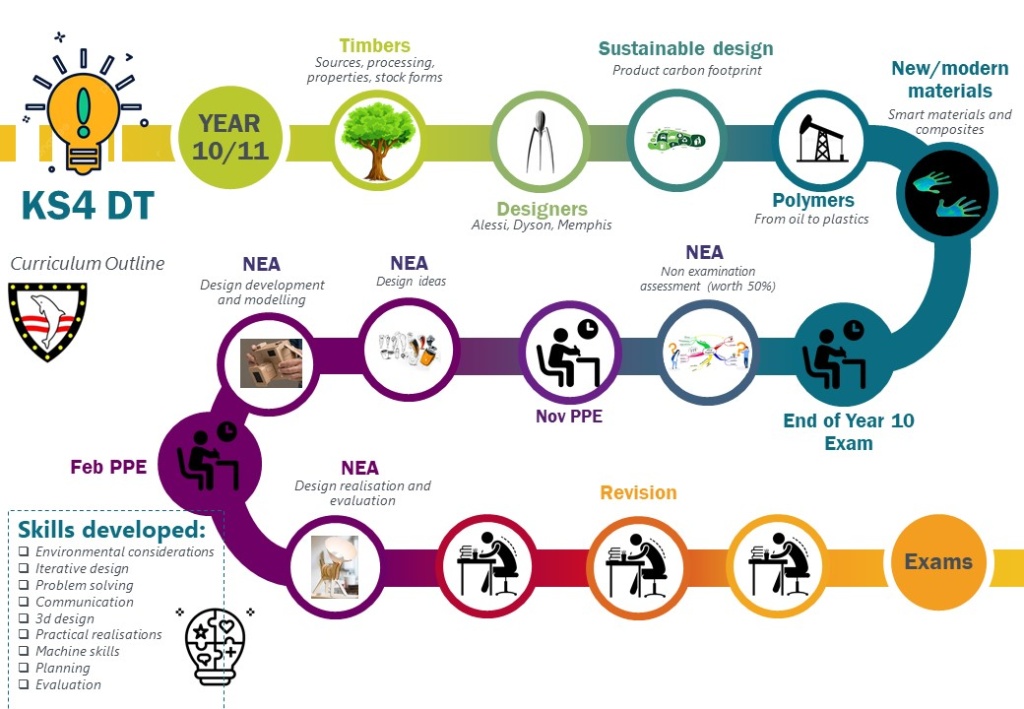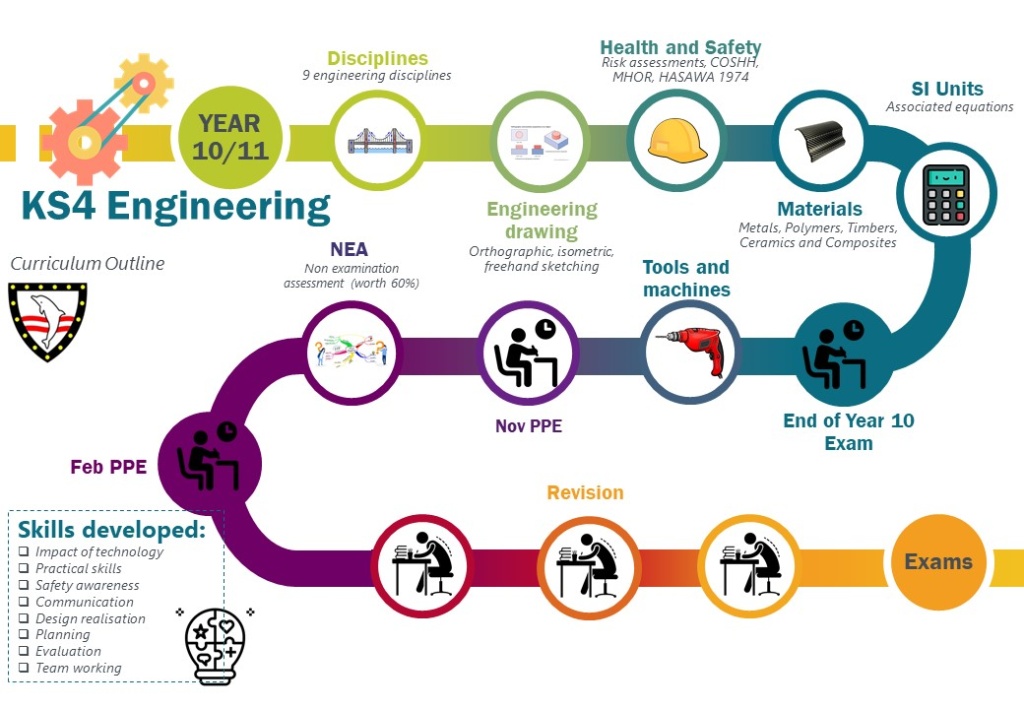Design and Technology
In Design Technology, students are introduced to the different technology work spaces and taught how to use the wide range of equipment the school possesses; from sewing machines to scroll saws, vacuum formers to laser cutters. As they progress through school the opportunities increase for students to learn more advanced processes and use more technical equipment such as the centre lathes, band saws and CNC equipment. Students learn to use current technologies and have opportunities to observe similar processes in industry.
In addition, students are challenged to consider the impact of future technological developments and their impact as designers on the environment.
Beyond the curriculum, a range of exciting design and engineering based opportunities enable our students to further develop their skills. As a result, each year sees students gaining county wide, and at times national, recognition through competitions.
During Design and Technology lessons at Richard Lander School, students are encouraged to think creatively, solve problems and work productively in teams and with independence. We are supporting the development of our future designers, engineers and entrepreneurs through a curriculum which seeks to engage and inspire.
At Key Stage 3, students will study the following aspects of Design Technology:
- Graphic Design
- 3D Design and Resistant Materials
- Textiles
During each project there is a strong emphasis on traditional making, engineering and craft techniques which ensures students have a broad skills base to take into Key Stage 4. In all material areas students are encouraged to develop their creativity and put their own touches to their class work.
The department is supported with leading edge technology, which allows students to build Computer Aided Design (CAD) and Computer Aided Manufacturing (CAM) into their work. This gives them a sense of what it really is like to design and manufacture their own product and be able to evaluate each step of the process.
A curriculum overview calendar for Years 7-11 DT is available here
A curriculum overview calendar for Years 7-11 DT Food and Textiles is available here
If you have further questions on Key Stage 3/4 Graphics, Engineering or Product Design please contact
If you have further questions on Key Stage 3/4 Textiles please contact
At Key Stage 4 students can opt to study Design Technology through a variety of courses.
GCSE Design Technology
This course introduces students to a wide range of subject specific skills during Year 10, allowing students to build on their KS3 knowledge and develop skills when working with a range of materials, equipment and processes, creatively and with increased accuracy. Students will learn about all the material areas covered in KS3 and will study timber and polymer material areas to greater level, for the final exam in Year 11. The GCSE qualification is assessed by an examination (worth 50% of the GCSE) and a non-examination assessment project (also worth 50% of the GCSE) where students work on an extended design brief provided by the exam board.
BTEC Tech Award Engineering
V-Cert Graphics
These courses are designed to give students vocational experience of the subject area, preparing them for careers in the subject. Across Year 10 and Year 11, students will complete modules that contribute towards the final grade. The modules are designed to give students a range of skills required to progress into either further education or apprenticeships.
GCSE Textiles: Art and Design
GCSE Art Textiles is an exciting course which focuses on leaning different textile techniques, exploring the work of fashion designers and textile artists. Students can base their work on any of the below categories:
• Fashion or Costume design
• Printing and dying textiles
• Interior design in textiles
• Embellished textiles
In Year 10 students will learn to create various textures through various mark making techniques. They will learn colour and proportions, pattern placement and how to develop their own ideas by looking at the work of other professionals. Year 11 will help to prepare them with the necessary skills to design, plan and make for their GCSE practical 10 hour exam.
A curriculum overview calendar for Years 7-11 DT is available here
A curriculum overview calendar for Years 7-11 DT Food and Textiles is available here
For the AQA GCSE Design and Technology exam specification please click here
For the BTEC Award in Engineering specification please click here
For the AQA GCSE Textiles: Art and Design specification please click here
If you have further questions regarding Key Stage 3/4 Graphics, Engineering or Product Design please contact
If you have further questions regarding Key Stage 3/4 Textiles please contact
Mrs L Downing – Textiles Teacher
